-
Doctors
-
Specialities & Treatments
Centre of Excellence
Specialties
Treatments and Procedures
Hospitals & Directions HyderabadCARE Hospitals, Banjara Hills CARE Outpatient Centre, Banjara Hills CARE Hospitals, HITEC City CARE Hospitals, Nampally Gurunanak CARE Hospitals, Musheerabad CARE Hospitals Outpatient Centre, HITEC City CARE Hospitals, Malakpet
HyderabadCARE Hospitals, Banjara Hills CARE Outpatient Centre, Banjara Hills CARE Hospitals, HITEC City CARE Hospitals, Nampally Gurunanak CARE Hospitals, Musheerabad CARE Hospitals Outpatient Centre, HITEC City CARE Hospitals, Malakpet Raipur
Raipur
 Bhubaneswar
Bhubaneswar Visakhapatnam
Visakhapatnam
 Nagpur
Nagpur
 Indore
Indore
 Chh. Sambhajinagar
Chh. SambhajinagarClinics & Medical Centers
Book an AppointmentContact Us
Online Lab Reports
Book an Appointment
Consult Super-Specialist Doctors at CARE Hospitals

High Risk Pregnancy
High Risk Pregnancy
High-Risk Pregnancy Treatment
Pregnancies are classified as high-risk when the mother, developing fetus or both are at an increased risk of developing complications during or after pregnancy and delivery. It is imperative that such women and their babies are closely monitored and cared for during pregnancy. It is important to know what causes a high risk pregnancy treatment and take the correct steps to manage it at the right time.
Causes of high-risk pregnancy
The causes of high-risk pregnancies can be mother-related, foetal-related, or pregnancy-related. They are:
Mother-related causes:
- Older/ younger age of mother
- Pre-existing medical conditions such as hypertension, diabetes or heart disease
- Recurrent pregnancy loss
- Unexplained intrauterine fetal death (IUFD) or stillbirth in the past
Foetal-related causes:
- Congenital defects (birth defects)
- Multiple gestations or pregnancy (pregnancy with more than one foetus)
- foetal-growth restriction
Pregnancy-related causes:
- Conditions developing during pregnancy - diagnosis of diabetes (gestational diabetes), preeclampsia (high blood pressure), or eclampsia (seizures)
- pre-term or post-term birth
- Abnormal positioning of placenta (placenta helps in exchange of nutrients, oxygen, and waste products between mother and foetus)
Signs and Symptoms
Upon learning you are pregnant, make an appointment with your best gynecologist doctor to discuss the possibility of a high-risk pregnancy. Discuss all pre-existing medical conditions, their management, as well as possible consequences of the same on labour and delivery. Here are some signs and symptoms of high-risk pregnancy:
-
Dizziness or loss of consciousness
-
Unbearable abdominal or pelvic pain
-
Decreased foetal-activity
-
Vaginal fluid leaks from your body
Seek medical attention immediately if you experience any of the above symptoms.
Risk factors for a high-risk pregnancy
Individuals with various preexisting conditions face heightened health risks during pregnancy. Some of these conditions encompass:
- Autoimmune diseases like lupus or multiple sclerosis (MS).
- COVID-19.
- Diabetes.
- Fibroids.
- High blood pressure.
- HIV/AIDS.
- Kidney disease.
- Low body weight (BMI less than 18.5).
- Mental health disorders, including depression.
- Obesity.
- Polycystic ovary syndrome (PCOS).
- Thyroid disease.
- Blood clotting disorders.
- Autoimmune Diseases (like Lupus or Multiple Sclerosis): In autoimmune diseases, the body's immune system attacks its own cells. In pregnancy, this can cause problems like miscarriage or premature birth. For example, lupus can affect the baby’s heart, and multiple sclerosis may worsen during pregnancy.
- COVID-19: COVID-19 during pregnancy can increase the chances of having a premature baby, low birth weight, or complications during delivery. Severe cases of COVID-19 can also lead to oxygen problems for both the mother and baby.
- Diabetes (Gestational and Pre-existing): Gestational diabetes happens during pregnancy and can cause the baby to grow too large, which may lead to delivery problems. Pre-existing diabetes (before pregnancy) can cause birth defects, growth issues, or even stillbirth if not controlled properly.
- Fibroids: Fibroids are non-cancerous growths in the uterus. They can cause problems like miscarriage, early labor, or difficulty delivering the baby due to their size or position.
- High Blood Pressure: High blood pressure (hypertension) can limit the blood flow to the placenta, which may cause the baby to grow slower or be born early. It can also increase the risk of preeclampsia, a serious condition for both the mother and baby.
- HIV/AIDS: HIV can be passed from mother to baby during pregnancy or delivery. Without treatment, it can increase the risk of preterm birth and affect the baby's growth and health, but with proper treatment, the chances of passing HIV to the baby can be greatly reduced.
- Kidney Disease: Kidney problems can affect the amount of nutrients and oxygen the baby gets. This can lead to low birth weight, early delivery, or other complications during pregnancy.
- Low Body Weight (BMI less than 18.5): Being underweight can cause problems like premature birth or having a low birth weight baby. It can also make it harder for the baby to get the nutrients it needs to grow properly.
- Mental Health Disorders (including Depression): Mental health problems like depression can affect the health of both the mother and the baby. It may increase the risk of preterm birth or low birth weight. Medications used to treat depression may also have effects on the baby.
- Obesity: Being overweight or obese during pregnancy increases the risk of conditions like gestational diabetes, high blood pressure, or complications during delivery. The baby may also grow too large, leading to problems at birth.
- Polycystic Ovary Syndrome (PCOS): PCOS is a condition that affects a woman's hormone levels. It can make it harder to get pregnant and increases the risk of complications like gestational diabetes or premature birth during pregnancy.
- Thyroid Disease: Problems with the thyroid gland, such as hypothyroidism (underactive thyroid) or hyperthyroidism (overactive thyroid), can affect both the mother and baby’s health. It can lead to issues like miscarriage, preterm birth, or developmental problems in the baby.
- Blood Clotting Disorders: Blood clotting disorders can cause blood clots to form during pregnancy, leading to complications like preeclampsia or miscarriage. They can also affect blood flow to the placenta, which can harm the baby.
Certain pregnancy-related health conditions can also pose risks to both the pregnant individual and the fetus. These include:
- Birth defects or genetic conditions in the fetus.
- Fetal growth restriction.
- Gestational diabetes.
- Multiple gestation (pregnancy with more than one fetus, e.g., twins or triplets).
- Preeclampsia and eclampsia.
- History of preterm labor or birth, or complications from prior pregnancies.
It is essential to tailor prenatal care to address the specific challenges associated with these conditions and mitigate potential risks for both the pregnant person and the fetus.
Complications of high-risk pregnancies
A high-risk pregnancy can pose serious risks to both the pregnant person and the fetus. Common complications that may arise include:
- Preeclampsia-related conditions such as gestational hypertension, preeclampsia, and eclampsia.
- Premature birth.
- Cesarean section.
- Heavy bleeding during labor, delivery, or after birth (postpartum hemorrhage).
- Low birth weight.
- Birth defects, which refer to developmental problems in the baby’s organs like the heart or brain (also known as congenital conditions).
- The need for your baby to be admitted to a neonatal intensive care unit (NICU).
- The need for the mother to be admitted to an intensive care unit (ICU).
- Miscarriage.
- Stillbirth.
It’s essential to discuss your risk of these complications with your healthcare provider. Don’t hesitate to ask any questions you have. With proper monitoring and care, both you and your provider can work together to reduce the likelihood of these or other complications.
Diagnosis of high-risk pregnancy:
You will be prescribed by your doctor one or more of the below-mentioned tests to identify high-risk pregnancies:
-
Ultrasounds - Targeted ultrasounds can produce images of your child in the womb, and can be used to check for things like fetal abnormalities.
-
Blood Testing - A routine blood test can also detect high-risk pregnancy causes like gestational hypertension. You and your baby can be at risk if this occurs and will need to be monitored and treated during pregnancy.
-
Urinalysis- This test can detect the presence of excess protein in the urine, which can be used to diagnose conditions such as preeclampsia.
Management of high-risk pregnancy
Management of a high-risk pregnancy usually depends on its underlying causes and symptoms. Frequent follow-ups with your doctor and routine check-ups are essential throughout the pregnancy in case of high-risk pregnancies.The following are some common methods of treating high-risk pregnancies:
-
Gestational Diabetes- Regular glucose monitoring is recommended and medications are given to regulate glucose levels. Pregnant mothers should also follow a diet-plan to control glucose levels in the body.
-
High blood pressure- Anti-hypertensives (blood pressure lowering medications) are prescribed. This condition can also be treated with lifestyle changes such as limiting salt intake and exercising regularly.
-
Foetal-related factors- Close monitoring of foetal growth and progress is done till the delivery.
How can I prevent a high-risk pregnancy?
To minimize the likelihood of complications during pregnancy, consider the following measures:
- Refrain from using drugs and alcohol.
- Prior to conceiving, assess potential health risks by informing your healthcare provider about both your familial and personal medical history.
- Sustain a healthy body weight prior to becoming pregnant.
- Effectively manage any preexisting health conditions you might have.
- Ensure the safety of long-term medications for use during pregnancy.
- Quit smoking.
- Plan pregnancies within the age range of 18 to 34.
- Practice safe sex.
Living with High-risk pregnancy
Living with a high-risk pregnancy can be challenging, but with the right care and support, many individuals can manage the risks and have a healthy pregnancy. Here are some key steps and tips for managing a high-risk pregnancy:
- Visit Your Doctor Regularly: You will need to see your doctor more often to keep track of your health and your baby’s health. This could include tests, ultrasounds, and blood work.
- Follow Your Doctor’s Advice: It’s important to listen to your doctor’s instructions, like taking medicine or changing your diet, to help avoid problems during your pregnancy.
- Take Care of Your Health: If you have any health issues, like diabetes or high blood pressure, make sure they are under control. This might include regular check-ups, medicine, or lifestyle changes.
- Watch for Warning Signs: If you notice things like severe headaches, swelling, or pain, call your doctor right away. These could be signs of complications that need attention.
- Live a Healthy Lifestyle: Eat a healthy diet, drink plenty of water, and get rest. Stay active, but only in ways your doctor approves, to help keep you and your baby healthy.
- Seek Emotional Support: Pregnancy can be stressful, especially if it’s high-risk. Talk to family, friends, or a counselor for support if you’re feeling anxious or stressed.
- Plan for Delivery: Discuss your delivery options with your doctor, like whether you may need a C-section or early delivery, so you’re prepared.
- Prepare for Extra Care for Your Baby: Sometimes, high-risk pregnancies may mean the baby needs extra care in the hospital after birth. Be ready for this possibility and talk to your doctor about it.
- Take It Easy: A high-risk pregnancy can be tough, so give yourself grace. Don’t be afraid to ask for help and take breaks when you need them.
Why choose CARE Hospitals for high-risk pregnancies?
High-risk pregnancies require expert care as there is a greater chance of a health crisis for both you and your baby. We, at CARE Hospitals, are well-equipped with expert doctors who are highly-experienced obstetricians and gynaecologists and doctors who also specialised in maternal-foetal medicine to provide the best care for every high-risk pregnancy situation. We have state-of-the-art infrastructure which can help you detect any problems in advance during your pregnancy, thereby initiating prompt management and treatment. Our experts at CARE Hospitals will always provide you and your child with the highest quality of care. We provide:
-
A detailed fetal image to diagnose medical abnormalities using advanced imaging techniques and plan appropriate treatment strategies.
-
Treatment during pregnancy and ensure a positive long-term outcome for the unborn, setting up a personalized care plan before and after delivery and the new-born period
-
Pre-natal education on high-risk deliveries and postnatal care in order to prepare you for the next step of the pregnancy, while supporting and minimizing mother and family stress.
CARE Hospitals provides the high risk pregnancy treatment in Hyderabad with the best care and treatments and has an experienced genecology for regular medical checkups to prevent any possible problems.
Our Doctors
-

Dr. Aditi Laad
MBBS, DNB
Woman & Child Institute
View More -
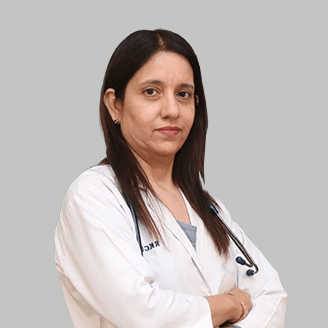
Dr. Chetna Ramani
MBBS, DGO
Woman & Child Institute
View More -
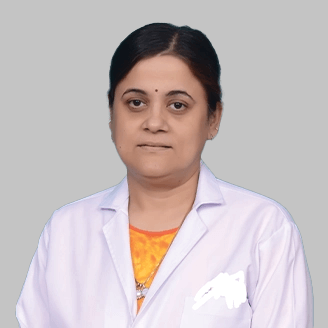
Dr. Sushmita Mukherjee Mukhopadhyay
MBBS, DGO, MD, DNB, FICOG
Woman & Child Institute
View More -

Dr. Neena Agrawal
MBBS, MS, FICOG, Diploma in Gynaecology, Endoscopy
Woman & Child Institute
View More -

Dr. Abhinaya Alluri
MS (OBG), FMAS, DMAS, CIMP
Woman & Child Institute
View More -

Dr. Alakta Das
MBBS, MS (O&G), FMIS
Woman & Child Institute
View More -

Dr. Alka Bhargava
MBBS, MS
Woman & Child Institute
View More -
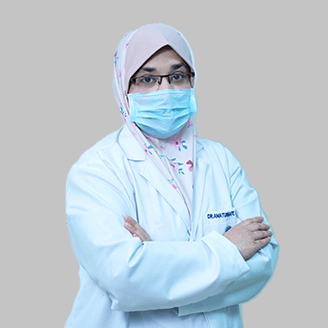
Dr. Amatunnafe Naseha
MBBS, DNB, FRM
Woman & Child Institute
View More -

Dr. Aneel Kaur
DGO
Woman & Child Institute
View More -

Dr. Anjali Masand
MBBS, MD (OBG)
Woman & Child Institute
View More -
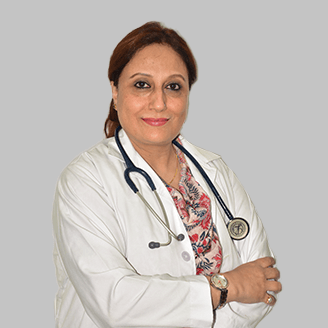
Dr. Arjumand Shafi
MBBS, DGO
Woman & Child Institute
View More -

Dr. Kranthi Shilpa
MBBS, MS (ObGyn), Fellowship in Infertility
Woman & Child Institute
View More -

Dr. Krishna P Syam
MBBS, DGO, DNB
Woman & Child Institute
View More -

Dr. M Sirisha Reddy
MBBS, MS OBGY
Woman & Child Institute
View More -

Dr. Maleeha Fatima
MBBS,DGO, DNB (Obstetrics and Gynaecology)
Woman & Child Institute
View More -

Dr. Maleeha Raoof
MBBS, DGO (Osmania University), DGO (University of Vienna), MRCOG
Woman & Child Institute
View More -

Dr. Manjula Anagani
MBBS, MD (Obstetrics & Gynecology), FICOG
Woman & Child Institute
View More -

Dr. Muthineni Rajini
MBBS, DGO, DNB, FICOG, ICOG, Certified Course in Gynecological Endoscopy
Woman & Child Institute
View More -

Dr. N Sarala Reddy
MBBS, MS (OBS & GYN), Diploma in IVF & Reproductive Medicine
Woman & Child Institute
View More -
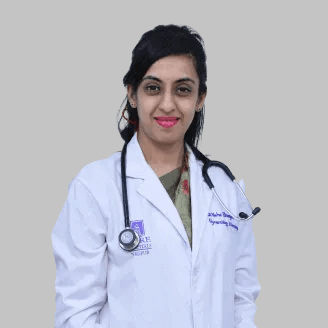
Dr. Neha V Bhargava
MS, DNB (obgyn), MNAMS, Fellow (Gynae Oncology)
Woman & Child Institute
View More -

Dr. Prabha Agrawal
MBBS, MD, FMAS, FICOG, Fellowship in minimal access surgery
Woman & Child Institute
View More -

Dr. Prathusha Kolachana
MBBS, MS (Obstetrics and Gynecology), Post-Doctoral Fellowship in Endogynecology (Laparoscopy)
Woman & Child Institute
View More -

Dr. Ruchi Srivastava
MBBS, DGO, DNB
Woman & Child Institute
View More -

Dr. S V Lakshmi
MBBS, DGO, DNB (OBGYN)
Woman & Child Institute
View More -

Dr. Shabnam Raza Akther
MBBS, MD, DNB
Woman & Child Institute
View More -
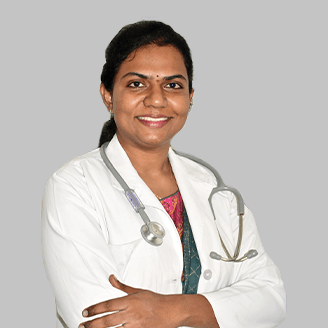
Dr. Shreeja Gurrala
MBBS, M.S Obstetrics and Gynaecology, FMAS, DMAS, FRM, Fellow in ART, Post Doctoral Fellowship in Urogynaecology
Woman & Child Institute
View More -

Dr. Sirisha Sunkavalli
MBBS, DNB (OBG), FMAS, CIMP, Fellowship in Urogynecology
Woman & Child Institute
View More -
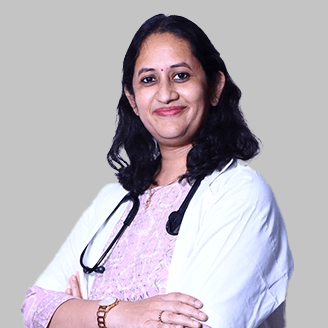
Dr. Sonal Lathi
MBBS, MD, DNB
Woman & Child Institute
View More -
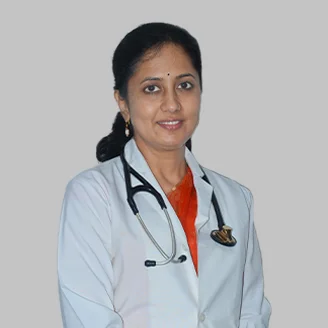
Dr. Sushma J
MBBS, MS (OBG)
Woman & Child Institute
View More -

Dr. Swapna Mudragada
MBBS, DGO, MS
Woman & Child Institute
View More
Frequently Asked Questions
Still Have a Question?

